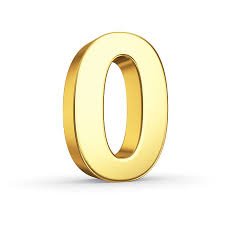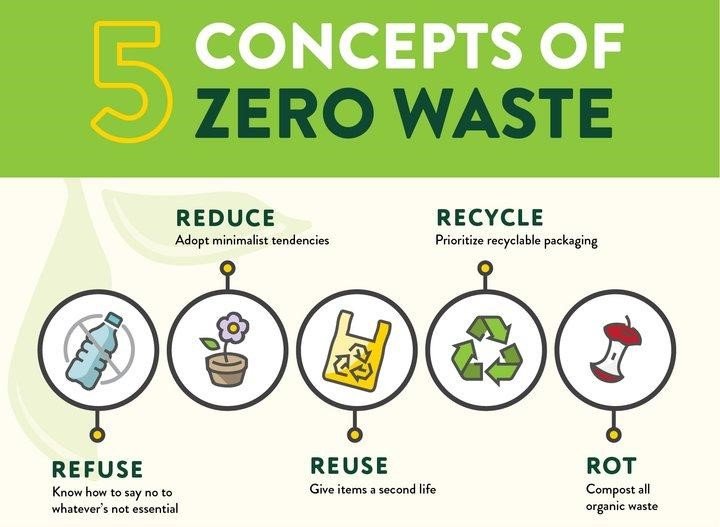What is zero waste?
So what exactly is meant by zero waste? Like zero, zip, nada, null trash? In a (compostable!) nutshell, yes.
Zero waste is an approach that seeks to minimize trash production to nothing through five Rs: refuse, reduce, reuse, recycle, rot.
Refuse – this is to say ‘no’ at the origin. Saying no to the bag at the store by bringing your own bag. Refusing a bag when you are buying 1, 2, or 3 items, and carrying them out of the store by hand. Refusing to use a plastic bag for produce. Refusing at the origin has the power of supply and demand behind it – reduce the demand and the supply will eventually respond.
Reduce – by lowering consumption and simultaneously consuming what we have to the end of a product’s life, we can reduce trash production. Questions to ask oneself: do I need another t-shirt (substitute anything applicable – sweatshirt, jeans, kitchen appliance, household tool, etc.)? do I need to buy this book? Can I get what I need through another method – swap, consignment store, thrift store, library, borrow, friend, community? Visit Melrose’s The Loop to leverage the power of borrowing, repairing, and reusing! All this has the added benefit of boosting your bank account balance. Win for the planet and win for the person.
Reuse – at the end of a product’s lifecycle…wait…is it really at the end? Let’s REthink. Old, frayed t-shirts make excellent mops, cleaning rags, pet toys, car polishers, etc. Bedsheets that are worn in the middle can be donated to pet shelters or cut and sewn into pillowcases. Holes in jeans and sweaters can be patched and made unique, hipster fashionable. Find a person gifted with a sewing machine and reuse – reinvent! – what you already have. More creative ideas are coming and welcome in the comments! How do YOU reuse?
the Japanese mending technique of shashiko
Recycle – you know this one already! We’ve adopted the recycle habit with enthusiasm. Our recycle bins go out each week full of plastic jars from our mayonnaise, metal cans from our soups, and glass bottles from our pasta sauce. Sadly, only 5% to 6% of plastic waste makes it to being recycled. More distressing is that sometimes an entire truck carrying what we have put in our bins for recycling can be declared contaminated and excluded from recycling. All of what we thought was being recycled is sent to the landfill or the incinerator instead. What is contamination? Dirty diapers / adult incontinence undergarments, food waste, cheesy pizza boxes in our recycle bins. There IS a strategic way to recycle!
Rot – turn those turnips into topsoil. Did you know that food waste generates around 10% of the global greenhouse emissions? What’s worse is that the decomposition of food waste produces methane gas, a far more powerful gas than carbon dioxide? When that wilted lettuce leaf, moldy slice of bread, or sprouting potato is put into the plastic trash bag and sent into the trash truck it seems reasonable to think that it will decay into nothingness. Not exactly. Food waste needs oxygen to decompose. Trapped inside a plastic trash bag and buried in a landfill without oxygen, that food waste will produce methane gas for, rumored to be, 25 years. Composting reduces the production of methane gas and creates a rich soil for the circle of life. Interested in composting? Black Earth Compost and Bootstrap Compost, two commercial composting companies, offer service to Melrose and surrounding communities.
Join the movement to go zero waste! Every step contributes to a cleaner, healthier Earth and all those inhabit this blue planet.



